This article explores the most common types of legal cases in the U.S. and provides expert guidance on finding qualified attorneys in Anchorage, Alaska.
Understanding Personal Injury Cases
Personal injury cases are among the most prevalent legal matters in the United States. They arise when individuals suffer harm due to the negligence or wrongful actions of another party. Common examples include car accidents, slip and falls, and workplace injuries. To effectively navigate these cases, it is essential to seek an attorney who specializes in personal injury law. Look for lawyers with a proven track record of successful settlements and verdicts. Additionally, consider their experience in handling cases similar to yours, as well as their ability to communicate clearly and empathetically.
Medical Malpractice: Navigating Complex Legal Terrain
Medical malpractice occurs when a healthcare provider fails to deliver the standard of care, resulting in patient harm. These cases can be intricate, often requiring expert testimony and in-depth knowledge of medical practices. When searching for an attorney in this field, prioritize those with specific experience in medical malpractice. Verify their credentials, including board certifications and memberships in professional organizations. A good attorney will also have a network of medical experts to strengthen your case.
Breach of Contract: Protecting Your Interests
Breach of contract cases arise when one party fails to fulfill their contractual obligations. These disputes can occur in various contexts, including business agreements and real estate transactions. To protect your interests, find a lawyer who specializes in contract law and has experience in your specific industry. Look for attorneys who can clearly explain your rights and the potential outcomes of your case. They should also have strong negotiation skills, as many breach of contract cases can be resolved outside of court.
Property Disputes: Resolving Conflicts Over Real Estate
Property disputes often involve disagreements over ownership, boundaries, or usage rights. These conflicts can escalate quickly and may require legal intervention. When selecting an attorney for a property dispute, seek someone with expertise in real estate law. They should be familiar with local laws and regulations, as well as possess strong negotiation and litigation skills. Additionally, ensure they have experience in resolving similar disputes, as this will enhance their ability to advocate effectively on your behalf.
Landlord-Tenant Disputes: Rights and Responsibilities
Landlord-tenant disputes can arise from various issues, including eviction, security deposits, and lease violations. Understanding your rights as a tenant or landlord is crucial. When looking for an attorney, consider those who specialize in landlord-tenant law. They should be knowledgeable about local housing regulations and have experience in handling similar cases. A good attorney will help you navigate the complexities of housing laws and advocate for your rights in negotiations or court if necessary.
Defamation: Protecting Your Reputation
Defamation cases, which include libel and slander, can significantly impact an individual’s reputation and livelihood. These cases require a nuanced understanding of both legal and media landscapes. When seeking an attorney for a defamation case, look for someone with experience in media law and a proven track record in similar cases. They should be capable of evaluating the strength of your claim and developing a robust strategy to protect your reputation.
Employment Disputes: Navigating Workplace Conflicts
Employment disputes can arise from wrongful termination, discrimination, or harassment. Finding a lawyer with expertise in employment law is essential for protecting your rights. Look for attorneys who have experience representing employees in similar situations. They should be familiar with federal and state labor laws and have a strong understanding of workplace rights. Additionally, consider their approach to negotiation and litigation, as many employment disputes can be resolved amicably.
Product Liability: Holding Manufacturers Accountable
Product liability cases involve injuries caused by defective products. These cases can be complex, often requiring expert testimony to establish causation and liability. When searching for an attorney, prioritize those who specialize in product liability law. They should have experience handling cases against manufacturers and distributors, as well as a strong understanding of consumer protection laws. A skilled attorney will be able to assess the strength of your case and guide you through the legal process.
Wrongful Death: Seeking Justice for Loss
Wrongful death cases arise when negligence leads to the death of an individual. These cases are emotionally charged and require a compassionate attorney who understands the sensitivity involved. When looking for an attorney, seek someone with experience in wrongful death claims. They should be knowledgeable about the legal requirements and have a track record of securing compensation for grieving families. Additionally, a good attorney will provide support throughout the legal process, helping you navigate this difficult time.
Class Action Lawsuits: When Many Unite
Class action lawsuits allow a group of individuals to collectively pursue claims against a defendant. These cases can be complex and require an attorney with experience in class action litigation. When searching for a lawyer, look for someone who has successfully handled class actions in the past. They should be able to demonstrate their ability to manage large groups of plaintiffs and navigate the legal intricacies involved. A strong attorney will help ensure that your collective rights are protected throughout the legal process.
Assault and Battery: Understanding Criminal Charges
Assault and battery cases involve allegations of physical harm or the threat of harm. These serious charges can have significant legal consequences, making it essential to have a skilled criminal defense attorney. When seeking representation, look for attorneys with experience in criminal law, particularly in assault and battery cases. They should understand the nuances of self-defense claims and be prepared to advocate vigorously on your behalf. A competent attorney will also provide you with a clear understanding of the potential outcomes and your legal options.
Cybercrime: Legal Challenges in the Digital Age
Cybercrime encompasses a range of offenses, including hacking and identity theft. As technology evolves, so do the legal challenges associated with these crimes. When looking for an attorney in this field, prioritize those with expertise in cyber law. They should be knowledgeable about the latest digital security issues and have experience handling cybercrime cases. A skilled attorney will be well-versed in both the legal and technical aspects of cyber law, providing you with comprehensive representation.
Family Law: Navigating Divorce and Custody Issues
Family law cases, including divorce, child custody, and support, require sensitive handling. When searching for a family law attorney, look for someone with experience in these specific areas. They should be able to provide guidance on the legal process and help you understand your rights and obligations. A compassionate attorney will also support you emotionally during this challenging time, ensuring that your interests and those of your children are prioritized.

Understanding Personal Injury Cases
Personal injury cases are a significant aspect of the legal landscape in the United States. They arise when individuals suffer harm due to the negligence or intentional actions of another party. These cases can encompass a wide range of incidents, including car accidents, slips and falls, and workplace injuries.
To navigate the complexities of personal injury law, it is essential to understand the key components that define these cases:
- Negligence: This is the cornerstone of most personal injury claims. To establish negligence, it must be proven that the defendant had a duty to act (or refrain from acting) in a certain way, breached that duty, and caused harm as a direct result.
- Damages: In personal injury cases, the injured party must demonstrate that they suffered damages, which can be economic (such as medical bills and lost wages) or non-economic (such as pain and suffering).
- Liability: Determining who is liable for the injuries is crucial. Multiple parties can be involved, and liability may be shared, complicating the case further.
When seeking legal representation for a personal injury case, consider the following expert tips:
- Research Experience: Look for attorneys who specialize in personal injury law and have a proven track record of success in similar cases.
- Check Credentials: Verify their education, bar association membership, and any relevant certifications.
- Read Reviews: Online reviews and testimonials can provide insights into the attorney’s reputation and client satisfaction.
- Initial Consultation: Most personal injury lawyers offer free consultations. Use this opportunity to assess their communication skills and understanding of your case.
- Fee Structure: Understand the attorney’s fee arrangement. Many personal injury lawyers work on a contingency basis, meaning they only get paid if you win your case.
In major cities like New York City, Los Angeles, and Chicago, the competition among personal injury attorneys is fierce. Utilize local legal directories, bar association referrals, and personal recommendations to find the most qualified candidates. Watch out for red flags, such as attorneys who guarantee outcomes or pressure you into signing contracts without fully explaining the terms.
By understanding the nuances of personal injury cases and knowing how to find the right legal representation, you can significantly improve your chances of achieving a favorable outcome.

Medical Malpractice: Navigating Complex Legal Terrain
Medical malpractice cases represent a critical area of personal injury law, wherein healthcare professionals fail to provide the standard of care expected in their field. These failures can lead to serious harm, including prolonged illness, disability, or even death. As a result, finding the right attorney to handle such cases is paramount, given the intricate nature of medical laws and the high stakes involved.
When seeking an attorney for a medical malpractice case, it’s essential to consider several key factors:
- Experience in Medical Law: Look for lawyers who specialize in medical malpractice and have a proven track record of handling similar cases. Their experience will equip them with the necessary knowledge of medical standards and legal precedents.
- Successful Case Outcomes: Research their history of settlements and verdicts. An attorney with a history of successful outcomes in malpractice cases will likely have the negotiation skills and courtroom experience needed to advocate effectively for your rights.
- Understanding of Medical Terminology: A good malpractice attorney should be well-versed in medical terminology and practices. This understanding is crucial when evaluating the actions of healthcare providers and presenting your case.
- Client Testimonials: Reviews and testimonials from previous clients can provide insight into an attorney’s approach, professionalism, and effectiveness. Seek out attorneys with positive feedback regarding their communication and support throughout the legal process.
- Initial Consultation: Most reputable malpractice attorneys offer free consultations. Use this opportunity to ask questions about their experience, approach to your case, and fee structure. This meeting will also allow you to gauge their responsiveness and willingness to address your concerns.
In addition to these factors, be mindful of red flags when selecting a medical malpractice attorney:
- Lack of Specialization: Avoid attorneys who claim to handle every type of case. Medical malpractice requires specific expertise; general practitioners may not have the necessary skills for complex medical cases.
- High Pressure Tactics: Be cautious of lawyers who pressure you to sign contracts or make quick decisions. A reputable attorney will provide you with the time and information needed to make informed choices.
- Unclear Fee Structures: Ensure that the attorney clearly explains their fee structure, including retainer fees, contingency fees, and any additional costs. Transparency is key to avoiding unexpected financial burdens later on.
Finding a qualified medical malpractice attorney can significantly affect the outcome of your case. In major metropolitan areas like New York City, Los Angeles, and Chicago, resources such as local bar associations or legal aid clinics can assist in finding specialized lawyers. Websites that aggregate reviews and ratings can also be beneficial in identifying reputable attorneys in your area.
Ultimately, a thorough and careful selection process will enhance your chances of successfully navigating the complex terrain of medical malpractice law and achieving the justice you deserve.

Breach of Contract: Protecting Your Interests
A breach of contract occurs when one party fails to meet their obligations as outlined in a legal agreement. This can happen in various contexts, from business transactions to personal agreements. Understanding the implications of a breach is essential for protecting your interests and seeking appropriate remedies.
When facing a breach of contract, it is crucial to assess the situation carefully. Consider the following steps:
- Review the Contract: Examine the terms of the contract to identify the specific obligations of each party. Look for clauses that outline consequences for non-compliance.
- Gather Evidence: Collect any documentation, emails, or communications that support your claim of breach. This evidence will be vital if you decide to pursue legal action.
- Attempt Resolution: Before escalating to legal measures, consider negotiating with the other party. Open communication may lead to a mutually beneficial resolution.
- Consult a Lawyer: If negotiations fail, it’s time to seek legal counsel. A lawyer skilled in contract law can provide guidance on your options and represent your interests effectively.
Finding the right attorney is critical. Here are some tips to help you identify qualified legal professionals:
- Look for Specialization: Focus on lawyers who specialize in contract law. Their expertise will be crucial in navigating the complexities of your case.
- Check Credentials: Verify the lawyer’s education, experience, and any relevant certifications. Membership in professional organizations can also indicate a commitment to staying updated in their field.
- Read Reviews: Look for client testimonials and reviews online. This feedback can provide insight into the attorney’s effectiveness and client satisfaction.
- Schedule Consultations: Many lawyers offer free initial consultations. Use this opportunity to discuss your case and assess whether you feel comfortable with their approach.
- Avoid Red Flags: Be cautious of lawyers who promise guaranteed outcomes or those who pressure you into making quick decisions. A reputable attorney will provide honest assessments and allow you time to consider your options.
In major metropolitan areas like New York City, Los Angeles, and Chicago, the abundance of legal professionals can be overwhelming. Utilize online platforms such as Avvo, LegalMatch, or Martindale-Hubbell to compare attorneys based on their experience, ratings, and areas of practice. Additionally, referrals from friends or family can lead you to trustworthy lawyers.
Ultimately, protecting your interests in a breach of contract case requires diligence and the right legal support. By following these guidelines, you can find a competent attorney who will advocate for your rights and help you achieve a favorable outcome.
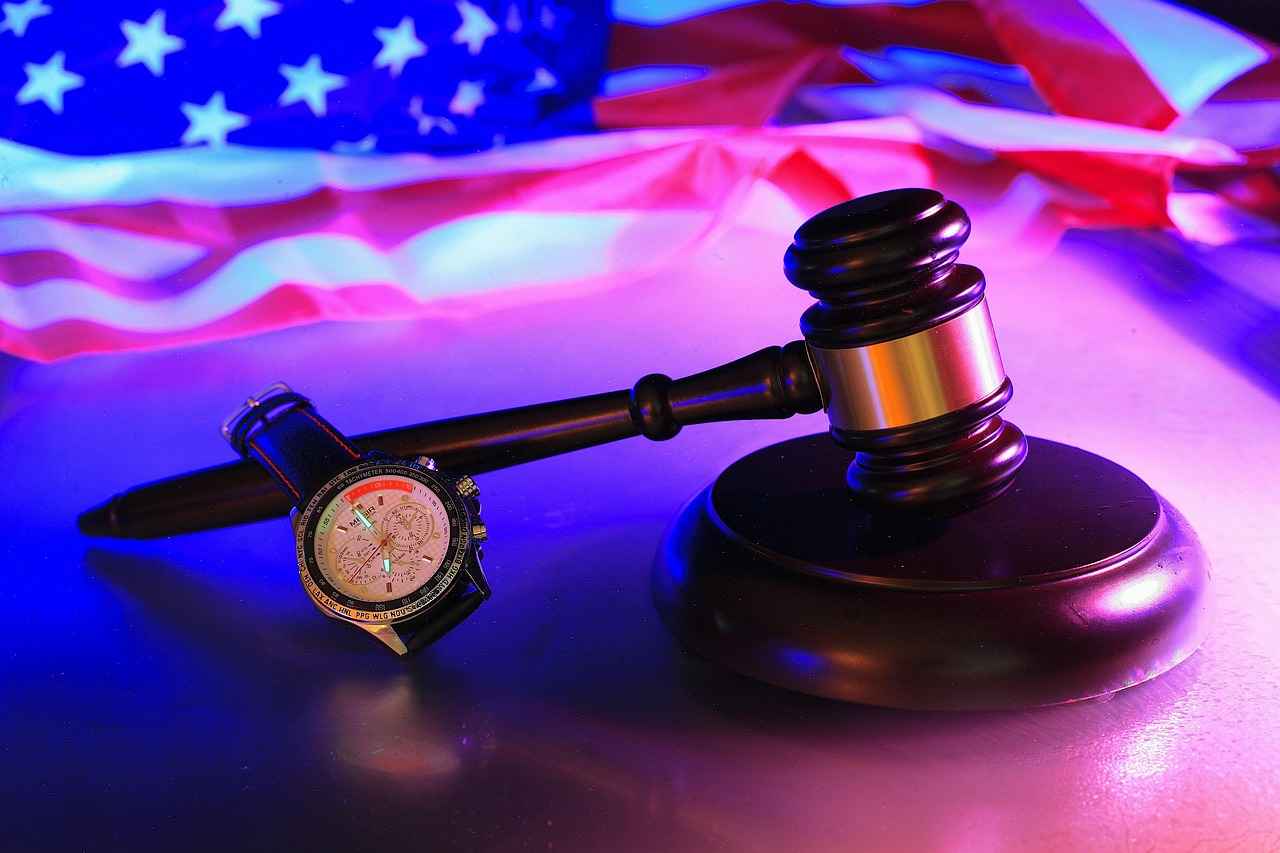
Property Disputes: Resolving Conflicts Over Real Estate
Property disputes can be a significant source of stress and conflict for homeowners, landlords, and tenants alike. These disputes often arise from ownership disagreements or boundary issues. When two parties claim the same piece of property or when boundaries are unclear, tensions can escalate quickly. Navigating these complex legal situations requires the expertise of an attorney who specializes in property law.
One common scenario leading to property disputes is the misunderstanding of property lines. This can occur due to poorly marked boundaries, the absence of a survey, or changes in land use over time. In such cases, hiring a qualified attorney can help clarify ownership rights and ensure that all parties involved understand their legal standings. An attorney can assist in obtaining surveys, reviewing property deeds, and negotiating settlements.
Another frequent cause of property disputes is disagreements over property rights. For instance, issues can arise between neighbors regarding easements, where one party may have the right to use a portion of another’s property for specific purposes, such as accessing a road. An experienced property attorney can help interpret these rights and negotiate terms that are acceptable to both parties.
Landlord-tenant disputes also fall under the umbrella of property law. Issues can arise over lease agreements, security deposits, and maintenance responsibilities. An attorney who specializes in landlord-tenant law can provide invaluable advice on how to handle these conflicts, ensuring that both parties understand their rights and responsibilities under the law.
When hiring a property attorney, it is essential to consider their experience and specialization. Look for attorneys who have a proven track record in handling property disputes similar to yours. Online platforms such as Avvo, FindLaw, and Martindale-Hubbell can help you find qualified attorneys in your area. Additionally, seeking recommendations from friends, family, or real estate professionals can lead you to trustworthy legal representation.
It is also crucial to evaluate an attorney’s communication skills. A good attorney should be able to explain complex legal terms in a way that is easy to understand. During your initial consultation, pay attention to how well the attorney listens to your concerns and answers your questions. This can be a strong indicator of how they will handle your case moving forward.
While searching for a property attorney, be wary of red flags. If an attorney makes unrealistic promises or guarantees outcomes, it may be a sign of inexperience or unethical practices. Additionally, be cautious of attorneys who do not provide clear information about their fees or who pressure you into making quick decisions. A reputable attorney will take the time to explain their fee structure and will encourage you to consider your options carefully before proceeding.
In conclusion, property disputes can be complex and emotionally charged. Engaging the services of a knowledgeable attorney can help you navigate these challenges effectively. By understanding the common causes of property disputes and knowing what to look for when hiring an attorney, you can protect your interests and work towards a resolution that is fair and just.
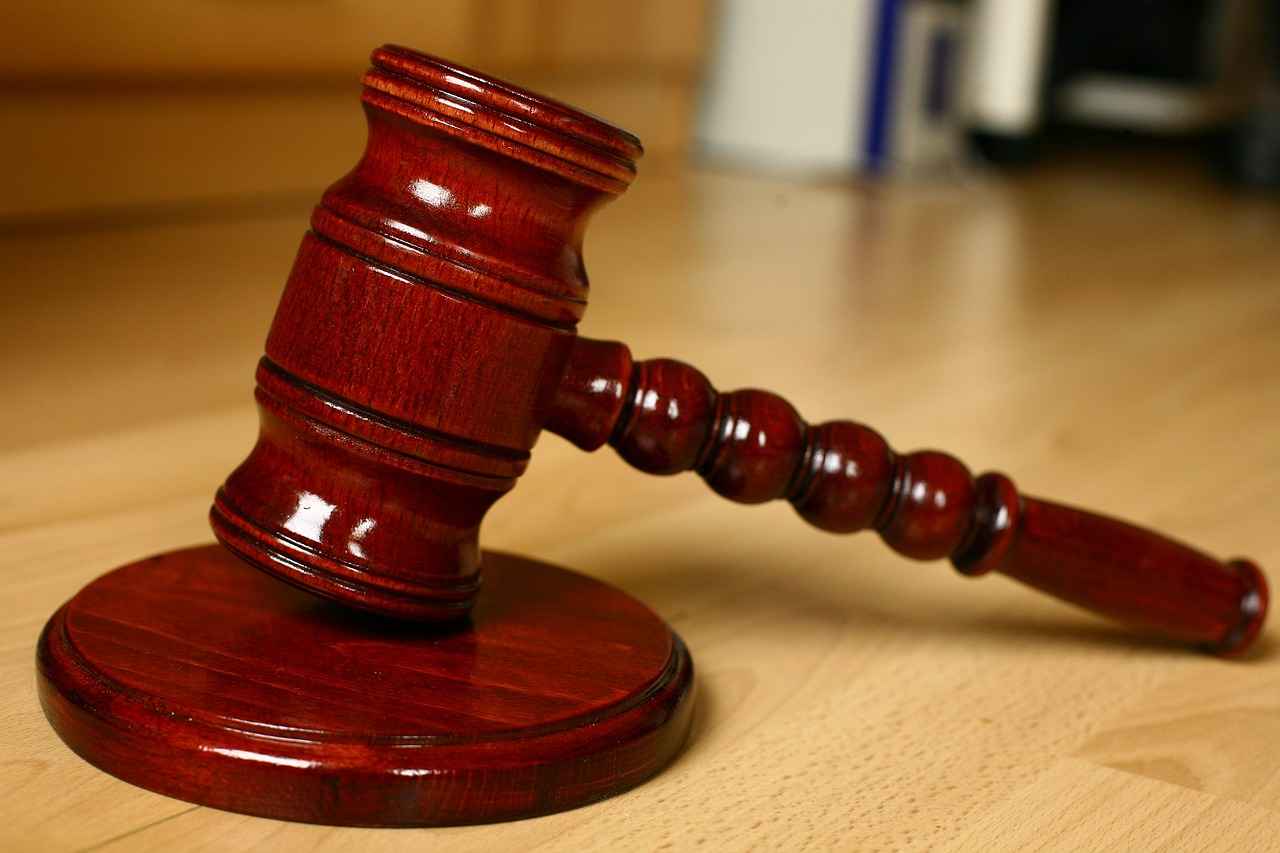
Landlord-Tenant Disputes: Rights and Responsibilities
Landlord-tenant disputes are a common occurrence in the realm of real estate law, often leading to significant legal battles. These disputes can arise from various issues, including eviction proceedings, security deposit disagreements, and maintenance problems. Understanding your rights as a tenant or landlord is crucial for navigating these conflicts effectively.
Tenants have specific rights protected under state and federal laws, which include the right to a habitable living environment, the right to privacy, and the right to not be discriminated against based on race, gender, or other protected characteristics. Landlords, on the other hand, have the right to receive rent on time, maintain their property, and evict tenants who violate lease agreements.
When a dispute arises, it is essential to gather all relevant documentation, such as the lease agreement, correspondence with the landlord or tenant, and records of payments. This documentation serves as crucial evidence should the case escalate to legal proceedings.
In many cases, landlords may seek to evict tenants for reasons such as non-payment of rent or lease violations. However, landlords must follow the legal eviction process, which often includes providing a formal notice and allowing a specific timeframe for the tenant to respond or rectify the issue. Failure to adhere to these legal requirements can result in a dismissed eviction case.
For tenants, if a landlord unlawfully withholds a security deposit or fails to make necessary repairs, they can pursue legal action. Tenants should be aware of the specific laws in their state regarding security deposits, including how much can be charged and the timeline for returning the deposit after a lease ends.
Finding an experienced attorney is essential in landlord-tenant disputes. Here are some tips for locating the right legal representation:
- Research local attorneys: Use legal directories and websites like Avvo or FindLaw to find attorneys specializing in landlord-tenant law in your area.
- Check credentials: Look for attorneys with good standing in their state bar association and relevant experience in landlord-tenant disputes.
- Read reviews: Client reviews and testimonials can provide insight into an attorney’s effectiveness and communication style.
- Consultation: Many attorneys offer free consultations. Use this opportunity to discuss your case and gauge the attorney’s approach and expertise.
Additionally, be wary of red flags when choosing an attorney. Avoid those who promise guaranteed results or who have poor communication skills. A reputable lawyer will provide realistic expectations and maintain open lines of communication throughout the process.
In conclusion, understanding your rights and responsibilities as a landlord or tenant is paramount in resolving disputes effectively. With the right knowledge and legal support, individuals can navigate these challenges and seek fair outcomes.
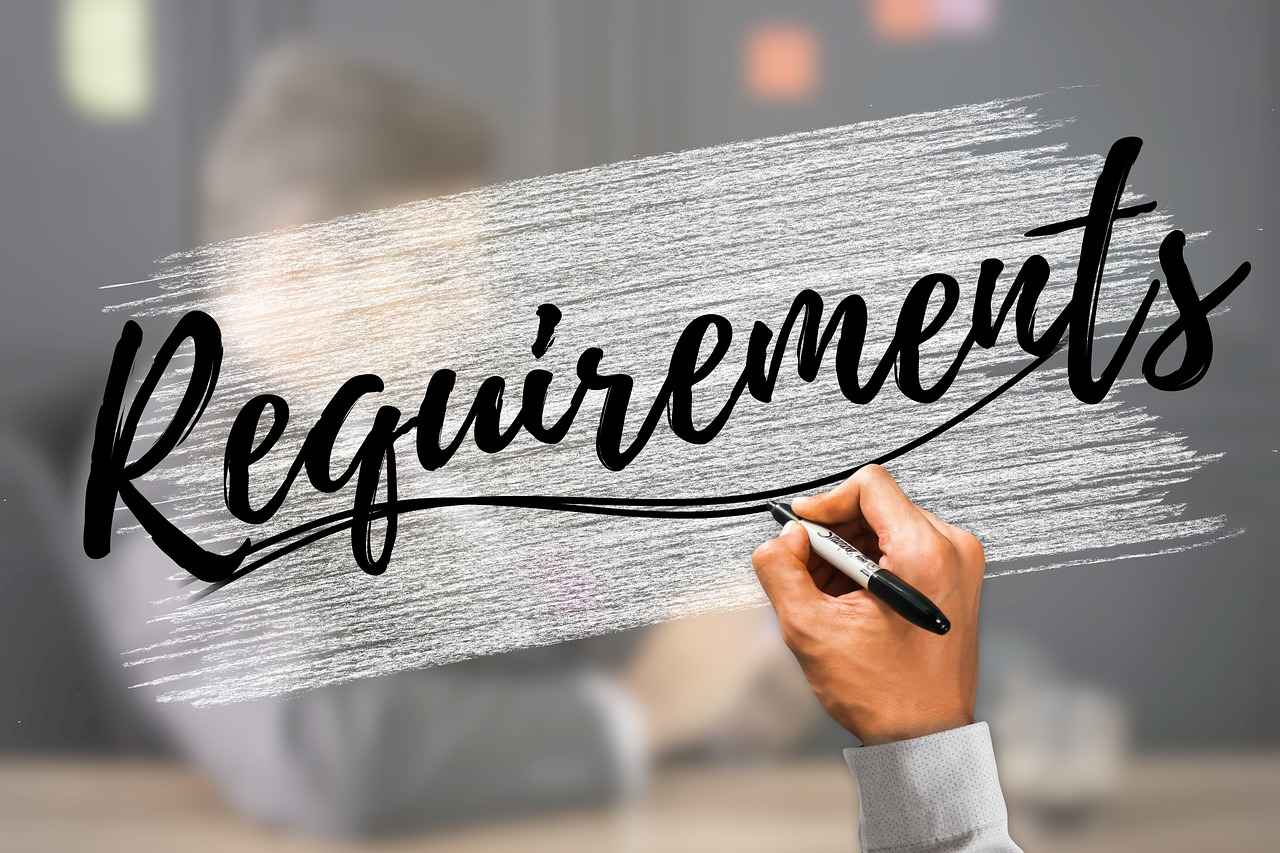
Defamation: Protecting Your Reputation
Defamation cases, which include libel (written statements) and slander (spoken statements), can have a profound and lasting impact on an individual’s personal and professional reputation. In today’s digital age, where information spreads rapidly, the consequences of defamatory statements can be devastating. Therefore, understanding the nuances of defamation law is crucial for anyone who finds themselves the target of false statements.
When pursuing a defamation case, it is essential to establish that the statement in question is not only false but also damaging to your reputation. This often requires a skilled attorney who specializes in defamation law. They will help you gather evidence, such as witness testimonies and documentation, to support your claim. Additionally, it is important to note that public figures face a higher burden of proof in defamation cases, as they must demonstrate actual malice on the part of the defendant.
Finding the right legal representation for a defamation case can be challenging, especially in major metropolitan areas where competition among lawyers is fierce. Here are some practical steps to ensure you find a qualified attorney:
- Research and Referrals: Start by asking for referrals from friends or family who may have dealt with similar issues. Online platforms like Avvo or Martindale-Hubbell provide ratings and reviews for attorneys, which can be helpful in your search.
- Check Credentials: Look for attorneys who specialize in defamation law and have a proven track record of successful cases. Check their education, years of experience, and any relevant certifications.
- Consultations: Schedule initial consultations with potential lawyers. This allows you to gauge their understanding of your case and their approach to handling it. Pay attention to how they communicate and whether they listen to your concerns.
- Assess Communication Skills: Effective communication is vital in legal matters. Ensure that the attorney can explain complex legal concepts in a way that you understand.
- Evaluate Fees: Understand the attorney’s fee structure upfront. Some may work on a contingency basis, while others may charge hourly rates. Make sure you are comfortable with the financial arrangement.
It is also crucial to be aware of red flags when hiring a lawyer for your defamation case. Be cautious of attorneys who promise guaranteed outcomes, as no legal case can be won without uncertainties. Additionally, avoid those who seem more interested in your money than in understanding your situation.
In summary, defamation cases can severely impact your reputation, making it essential to seek qualified legal representation. By conducting thorough research and following the guidelines outlined above, you can find an attorney who will advocate for your rights and help you navigate the complexities of defamation law.

Employment Disputes: Navigating Workplace Conflicts
Employment disputes are a significant concern for many individuals in the workplace. These conflicts can arise from various issues, including wrongful termination, discrimination, and harassment. Understanding the complexities of these disputes is essential for protecting your rights and ensuring fair treatment in your job. When faced with such challenges, finding a lawyer with experience in employment law can be a crucial step in navigating these turbulent waters.
One of the most common types of employment disputes is wrongful termination. This occurs when an employee is fired for reasons that violate federal or state laws, such as discrimination based on race, gender, age, or disability. Additionally, if an employee is terminated for whistleblowing or for taking legally protected leave, they may have grounds for a wrongful termination claim. A knowledgeable attorney can help assess your situation and determine if you have a valid case.
Discrimination in the workplace is another prevalent issue that can lead to legal disputes. Employees may face unfair treatment based on their race, sex, age, religion, or disability. If you believe you have been discriminated against, it is vital to document any incidents and seek legal counsel. An experienced employment lawyer can assist in filing a complaint with the Equal Employment Opportunity Commission (EEOC) and represent you in court if necessary.
Harassment is yet another serious concern in the workplace. This can take many forms, including sexual harassment, bullying, or creating a hostile work environment. Victims of harassment often feel isolated and unsure of how to proceed. An attorney specializing in employment law can provide guidance on how to document incidents, report the behavior to your employer, and pursue legal action if needed.
When searching for an attorney to handle your employment dispute, consider the following steps:
- Research Experience: Look for lawyers who specialize in employment law and have a proven track record in handling similar cases.
- Check Credentials: Verify their qualifications, including education, bar association memberships, and any relevant certifications.
- Read Reviews: Online reviews and testimonials can provide insight into a lawyer’s reputation and client satisfaction.
- Schedule Consultations: Many attorneys offer free initial consultations, allowing you to gauge their expertise and approach to your case.
Additionally, be cautious of red flags when choosing a lawyer. Avoid attorneys who guarantee specific outcomes, as legal cases can be unpredictable. Also, be wary of those who seem more interested in their fees than your well-being. A trustworthy attorney will prioritize your needs and work diligently to protect your rights.
In conclusion, navigating employment disputes can be challenging, but with the right legal representation, you can effectively advocate for your rights. Whether facing wrongful termination, discrimination, or harassment, seeking the help of an experienced employment lawyer is a crucial step towards achieving a favorable resolution.

Product Liability: Holding Manufacturers Accountable
Product liability cases are critical in ensuring that manufacturers and distributors are held accountable for the safety of their products. These cases arise when a defective product causes injury or harm to a consumer. The law provides a framework for victims to seek compensation from responsible parties, which can include the manufacturer, retailer, or even the designer of the product.
Understanding the different types of product defects is essential in these cases. They generally fall into three categories:
- Design Defects: These occur when a product is inherently unsafe due to its design, even if it is manufactured correctly.
- Manufacturing Defects: These happen when a product is made incorrectly, resulting in a dangerous item that does not meet safety standards.
- Marketing Defects: These involve improper labeling, insufficient instructions, or failure to warn consumers about potential risks.
To pursue a product liability claim, it is crucial to gather evidence that demonstrates how the product caused harm. This can include:
- Medical records documenting injuries.
- Photographs of the product and the scene of the incident.
- Receipts or proof of purchase to establish ownership.
When seeking legal representation, look for attorneys who specialize in product liability law. Here are some steps to find the right attorney:
- Research Experience: Look for lawyers with a proven track record in product liability cases. Experience can significantly impact the outcome of your case.
- Check Reviews and Testimonials: Online reviews and client testimonials can provide insights into an attorney’s reputation and effectiveness.
- Consultation: Many attorneys offer free consultations. Use this opportunity to discuss your case and gauge their expertise.
- Verify Credentials: Ensure the attorney is licensed to practice in your state and check for any disciplinary actions.
- Discuss Fees: Understand the attorney’s fee structure. Many work on a contingency basis, meaning they only get paid if you win your case.
Red flags to avoid include:
- Attorneys who guarantee specific outcomes.
- Those who pressure you into signing contracts quickly.
- Lack of experience in handling similar cases.
In major metropolitan areas like New York City, Los Angeles, and Chicago, you can also utilize online platforms such as Avvo, FindLaw, and LegalMatch to connect with qualified attorneys. These platforms allow you to compare profiles, read reviews, and even ask questions to potential lawyers.
In conclusion, product liability cases are complex and require specialized legal knowledge. By taking the time to find a qualified attorney, you can ensure that your rights are protected and that you receive the compensation you deserve for your injuries caused by defective products.

Wrongful Death: Seeking Justice for Loss
Wrongful death cases represent one of the most emotionally challenging areas of law, as they arise when a person’s life is cut short due to the negligence or wrongful actions of another party. This can include incidents involving automobile accidents, medical malpractice, defective products, and more. In these sensitive situations, finding a compassionate and experienced attorney is crucial for navigating the complex legal landscape and ensuring that justice is served for the deceased and their loved ones.
When pursuing a wrongful death claim, it is essential to understand the legal framework surrounding these cases. Typically, the victim’s family members, such as spouses, children, or parents, have the right to file a lawsuit against the responsible party. The goal is to seek compensation for various damages, including funeral expenses, loss of income, and emotional suffering. Given the intricacies involved, having a knowledgeable attorney can make a significant difference in the outcome of the case.
To find the best attorney for a wrongful death case in cities like New York, Los Angeles, or Chicago, consider the following steps:
- Research Experience: Look for attorneys who specialize in wrongful death and have a proven track record of successful cases. Review their case history and client testimonials.
- Check Credentials: Verify the attorney’s education, licensing, and any additional certifications in personal injury or wrongful death law.
- Consultation: Schedule initial consultations with potential attorneys. This allows you to gauge their understanding of your case and their approach to handling it.
- Discuss Fees: Understand the attorney’s fee structure. Many wrongful death attorneys work on a contingency basis, meaning they only get paid if you win the case.
- Assess Communication: Effective communication is vital. Choose an attorney who listens to your concerns and explains the legal process clearly.
It’s also important to be aware of red flags when hiring a wrongful death attorney. Avoid those who promise guaranteed outcomes, as no attorney can predict the result of a case. Additionally, be cautious of attorneys who pressure you into making quick decisions or those who lack transparent fee structures.
In summary, wrongful death cases are complex and emotionally charged, requiring not only legal expertise but also a deep sense of empathy. By taking the time to research and select the right attorney, families can ensure that they are adequately represented in their pursuit of justice.
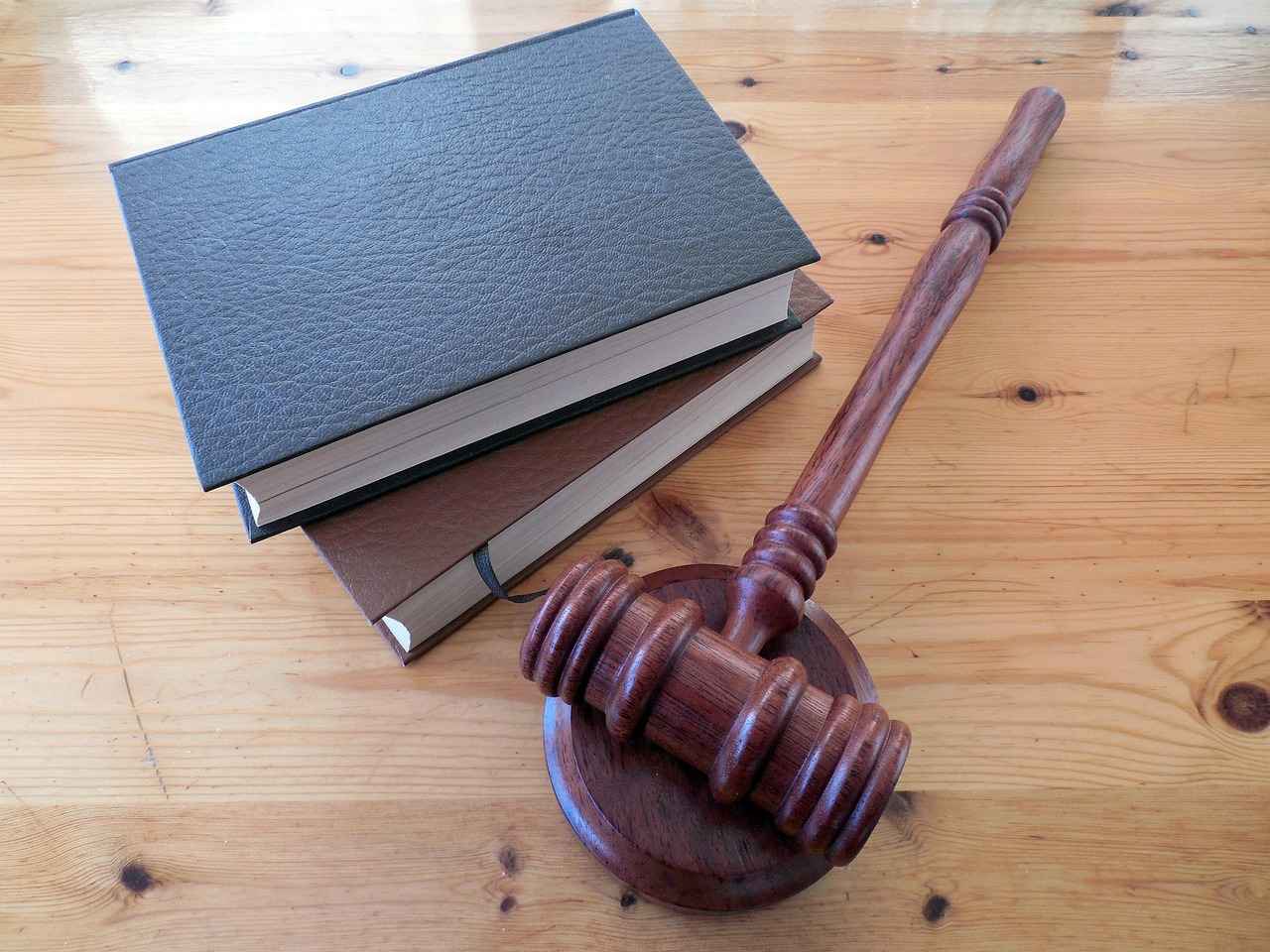
Class Action Lawsuits: When Many Unite
Class action lawsuits are a powerful legal tool that allows a group of individuals, often facing similar grievances, to collectively pursue claims against a defendant. This legal mechanism is particularly useful in cases where individual claims might be too small to warrant separate lawsuits, making it financially unfeasible for individuals to seek justice alone. By joining forces, plaintiffs can pool resources, share costs, and increase their chances of obtaining a favorable outcome.
In the realm of class action lawsuits, it is essential to have an attorney with experience in handling such cases. These attorneys possess the necessary knowledge and skills to navigate the complexities of class action litigation, which can be significantly different from traditional lawsuits. They understand the procedural nuances, including the certification process, which determines whether a case can proceed as a class action. This process involves demonstrating that the claims of the class members share common legal or factual issues, making it more efficient to resolve them together.
When searching for a qualified attorney to represent you in a class action lawsuit, consider the following steps:
- Research Law Firms: Look for law firms that specialize in class action lawsuits. Review their track record and the types of cases they have handled successfully.
- Check Credentials: Verify the attorney’s credentials, including their education, years of experience, and any relevant certifications or memberships in professional organizations.
- Read Reviews: Look for client testimonials and reviews online. Platforms like Avvo, Martindale-Hubbell, and Google Reviews can provide insights into the attorney’s reputation and client satisfaction.
- Consultation: Schedule a consultation to discuss your case. This meeting allows you to gauge the attorney’s understanding of your situation, their communication style, and their willingness to advocate for your interests.
- Evaluate Fees: Understand the fee structure. Many class action attorneys work on a contingency fee basis, meaning they only get paid if you win. Make sure you are clear about any potential costs involved.
Red flags to avoid include:
- Too Good to Be True Promises: Be cautious of attorneys who guarantee specific outcomes or make unrealistic promises about the success of your case.
- Lack of Experience: Avoid attorneys who do not have a proven track record in class action lawsuits. Experience in this area is crucial for navigating the complexities of such cases.
- Poor Communication: If an attorney is unresponsive or fails to provide clear answers during your initial consultation, it may be a sign of how they will handle your case.
In major metropolitan areas like New York City, Los Angeles, and Chicago, the competition among attorneys is fierce. This can be advantageous for clients, as it often leads to a wider selection of qualified professionals. However, it also necessitates diligence in your search. Utilize online legal directories, local bar association referrals, and community resources to identify potential attorneys.
Ultimately, class action lawsuits represent a collective effort to seek justice and accountability from larger entities. By choosing the right attorney, you can enhance your chances of a successful outcome and ensure that your rights are effectively represented. Remember, the journey through a class action lawsuit can be lengthy and complex, but with the right legal support, you can navigate it with confidence.
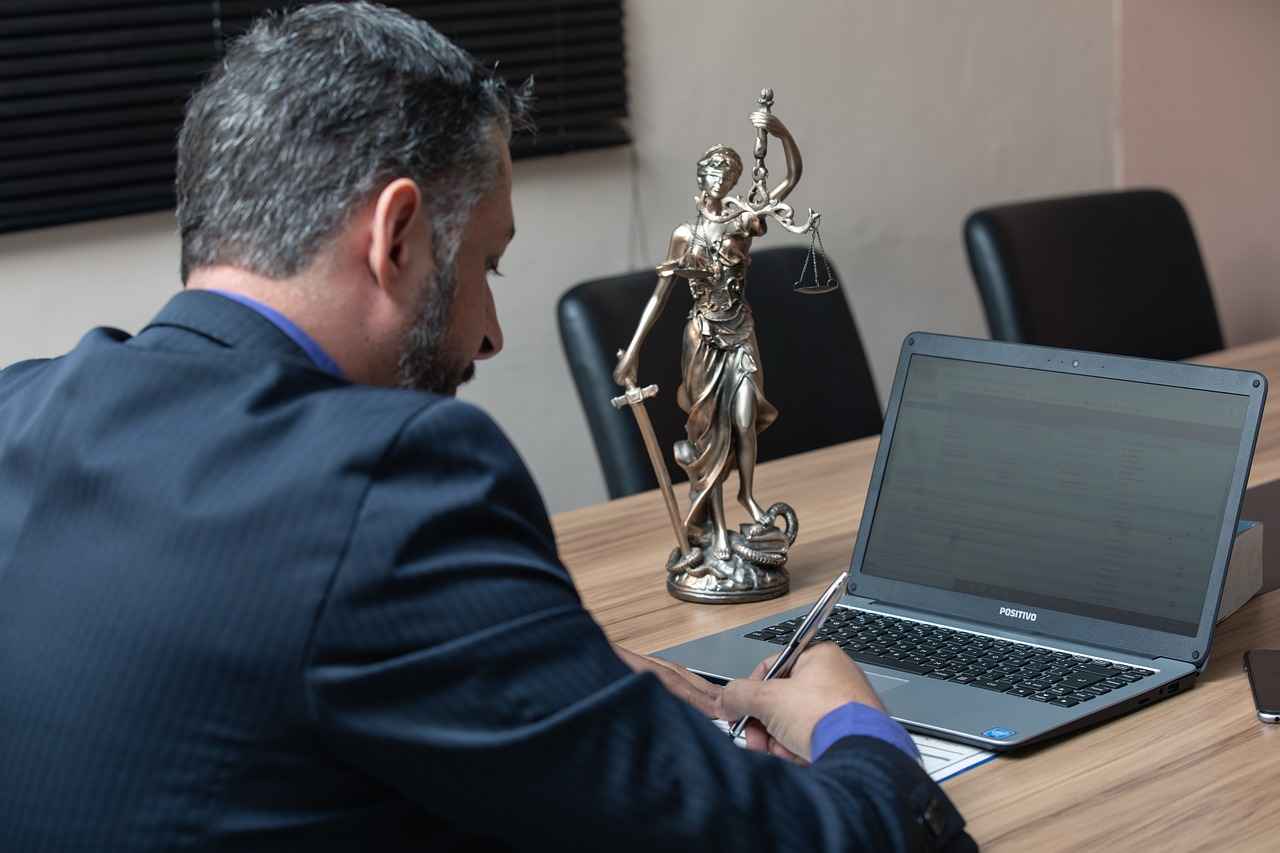
Assault and Battery: Understanding Criminal Charges
Assault and battery are serious criminal offenses that can have significant legal repercussions. These cases typically involve physical harm or the threat of harm against another person. Understanding the nuances of these charges is essential for anyone facing allegations or seeking legal representation. In the realm of criminal law, assault refers to the act of threatening or attempting to cause physical injury, while battery involves actual physical contact or harm. Both offenses can range from misdemeanors to felonies, depending on the severity of the actions involved.
When navigating the complexities of assault and battery cases, having a skilled criminal defense attorney is crucial. These legal professionals possess the knowledge and experience necessary to defend against such serious charges effectively. They can help clients understand their rights, the potential consequences they face, and the best strategies for their defense. A proficient attorney will evaluate the specifics of the case, including any evidence, witness testimonies, and the context surrounding the incident.
In addition to providing a robust defense, an attorney can also negotiate plea deals or reduced charges, which can significantly impact the outcome of the case. Furthermore, they can help clients prepare for court appearances, ensuring that they present themselves in the best possible light. This preparation can include practicing responses to potential questions and understanding courtroom procedures.
Finding the right attorney for an assault and battery case involves several important steps. First, individuals should seek out attorneys who specialize in criminal defense, particularly those with experience in handling assault and battery cases. This specialization ensures that the attorney is familiar with the intricacies of the law and the local court system.
Additionally, potential clients should look for attorneys with a strong track record of successful outcomes in similar cases. Online reviews, testimonials, and referrals from trusted sources can provide valuable insights into an attorney’s reputation and effectiveness. It is also wise to schedule initial consultations with multiple attorneys to gauge their approach and determine who feels like the best fit.
Another critical aspect to consider is the attorney’s communication style. A good attorney should be approachable and willing to explain legal concepts in a way that clients can understand. This open line of communication is vital, as clients need to feel comfortable discussing sensitive details of their cases.
Finally, individuals should be wary of red flags during the attorney selection process. These can include attorneys who make unrealistic promises about the outcome of a case, those who seem disinterested during consultations, or those who lack transparency regarding fees and billing practices. Trusting one’s instincts is essential; if something feels off, it may be best to continue searching for legal representation.
In summary, assault and battery cases are complex legal matters that require expert guidance. By seeking out a qualified criminal defense attorney, individuals can better navigate the legal landscape and work towards a favorable resolution. Whether facing charges or seeking to understand the legal implications of such offenses, having a knowledgeable advocate can make all the difference.

Cybercrime: Legal Challenges in the Digital Age
In today’s interconnected world, cybercrime has emerged as a significant threat, encompassing a wide range of offenses, including hacking, identity theft, and online fraud. As technology evolves, so do the methods and sophistication of cybercriminals, making it crucial for individuals and businesses to understand the legal landscape surrounding these offenses. Engaging the right attorney who specializes in cyber law is essential for effective representation and protection of your rights.
When searching for a qualified attorney in this field, consider the following key factors:
- Specialization in Cyber Law: Look for attorneys who have a proven track record in handling cybercrime cases. They should be well-versed in laws related to data privacy, intellectual property, and digital fraud.
- Experience with Technology: An attorney with a strong understanding of technology and cybersecurity measures will be better equipped to navigate the complexities of cybercrime cases.
- Reputation and Reviews: Research potential attorneys online. Look for client reviews and testimonials to gauge their effectiveness and professionalism. Websites like Avvo or Martindale-Hubbell can provide valuable insights.
- Consultation Availability: Many attorneys offer free initial consultations. Use this opportunity to discuss your case, understand their approach, and evaluate if they are a good fit for your needs.
- Legal Fees: Understand the fee structure upfront. Some attorneys may charge hourly rates, while others might work on a contingency basis. Make sure you are comfortable with the financial arrangement before proceeding.
As cybercrime cases can involve intricate legal challenges, having an attorney who is not only knowledgeable but also experienced in navigating the legal system is vital. They can help you understand your rights, represent you in court, and work to recover any losses incurred due to cybercriminal activities.
Furthermore, consider the following common types of cybercrime that may require legal intervention:
- Data Breaches: If your personal or business data has been compromised, an attorney can guide you on how to respond and seek damages.
- Phishing Scams: If you fall victim to phishing scams that lead to financial loss, legal representation can help you pursue restitution.
- Intellectual Property Theft: Cybercriminals often steal proprietary information. An attorney can assist in protecting your intellectual property rights.
- Online Harassment and Stalking: If you are a victim of online harassment, legal action may be necessary to ensure your safety and hold perpetrators accountable.
In metropolitan areas like New York City, Los Angeles, and Chicago, the demand for cyber law expertise is growing. As such, you may find numerous attorneys specializing in this niche. However, it is essential to conduct thorough research to identify those with a solid reputation and a history of successful outcomes in cybercrime cases.
Finally, while seeking legal representation, be mindful of red flags such as:
- Lack of Transparency: If an attorney is unwilling to provide clear information about their experience or fees, consider this a warning sign.
- Poor Communication: An attorney should be responsive and communicative. If they fail to return calls or provide updates, it may indicate a lack of professionalism.
- Unverifiable Claims: Be cautious of attorneys who make unrealistic promises about the outcomes of your case. Legal matters are often unpredictable, and no attorney can guarantee results.
In conclusion, navigating the complexities of cybercrime requires not only awareness but also the right legal support. By understanding the types of cyber offenses, knowing what to look for in an attorney, and being vigilant about potential red flags, you can effectively protect yourself and seek justice in the digital age.

Family Law: Navigating Divorce and Custody Issues
Family law encompasses a wide range of legal matters that significantly impact personal lives, particularly issues surrounding divorce, child custody, and support. These cases often require a delicate approach due to their emotional nature. When navigating such sensitive areas, having an experienced family law attorney by your side can make a substantial difference.
Divorce cases can be particularly complex, involving not only the division of assets but also the emotional well-being of all parties involved. It is essential to find a lawyer who understands the intricacies of divorce law in your state. Look for attorneys who specialize in family law and have a proven track record of managing similar cases. Referrals from trusted friends or family can also be invaluable in your search.
In matters of child custody, the stakes are incredibly high. Parents must often navigate difficult waters, balancing their desires with the best interests of their children. A knowledgeable attorney will help outline the various custody arrangements available, such as joint custody or sole custody, and will advocate for your rights while considering what is best for the child. It is crucial to select an attorney who is not only skilled in negotiation and litigation but also possesses a deep understanding of the emotional aspects involved.
Furthermore, child support and spousal support (alimony) are critical components of family law that can lead to disputes. Understanding the guidelines for calculating support in your state is essential. An attorney who is familiar with local laws can provide insights into what you can expect in terms of financial obligations or entitlements. Documentation is key in these cases, so ensure that your attorney emphasizes the importance of gathering all necessary financial records.
When searching for a family law attorney, consider the following steps:
- Research Online: Use legal directories and review platforms to find attorneys in your area. Websites like Avvo and Martindale-Hubbell offer ratings and reviews.
- Check Credentials: Look for attorneys who are members of professional organizations, such as the American Bar Association or local bar associations.
- Consultations: Many attorneys offer free initial consultations. Use this opportunity to assess their experience and approach to your case.
- Ask Questions: Inquire about their experience with similar cases, their strategy for your situation, and their fee structure.
- Trust Your Instincts: Choose an attorney you feel comfortable with, as a strong attorney-client relationship is crucial in family law matters.
Be wary of red flags such as attorneys who guarantee outcomes, lack transparency in their fees, or seem disinterested in your case. Family law can be emotionally charged, and having the right representation can ease some of the burdens. In summary, navigating family law cases requires careful consideration and the right legal support. By following these guidelines, you can find a qualified attorney who will advocate for your rights and help you through this challenging time.
Frequently Asked Questions
- What should I look for when hiring a lawyer in Anchorage?
When searching for a lawyer, consider their experience, specialization, and client reviews. It’s crucial to find someone who understands your specific legal needs and has a proven track record in similar cases.
- How do I know if I have a valid personal injury case?
If you’ve been injured due to someone else’s negligence, you may have a valid case. It’s best to consult with a personal injury attorney who can evaluate the circumstances surrounding your injury and guide you on the next steps.
- What are the common types of legal cases handled by attorneys?
Attorneys handle a wide range of cases, including personal injury, medical malpractice, breach of contract, property disputes, and family law issues. Each type requires specific knowledge and expertise.
- How can I prepare for my first meeting with a lawyer?
Gather all relevant documents, write down your questions, and be ready to discuss your case’s details. This preparation will help your lawyer understand your situation better and provide you with the best advice.
- What should I expect during the legal process?
The legal process can be lengthy and complex. Expect to engage in discussions, negotiations, and possibly court appearances. Your attorney will guide you through each step, ensuring you understand what’s happening.














